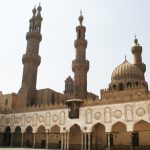By Lina Attalah – The New York Times –
As we were winding up the day on May 24 at the office of Mada Masr, the news website where I work, we started to notice something strange. Our site had vanished from the internet in Egypt. After some technical tests and conversations with users of different internet service providers, we realized what had happened: Mada Masr was being blocked in Egypt.
Mada Masr was born in a moment of political uncertainty. It was June 2013, when people were protesting the rule of the Muslim Brotherhood. Then the military intervened, ousted President Mohamed Morsi and appointed a government until their commander, Abdel Fattah el-Sisi, was elected president a few months later.
Dissent — or any act resembling critique of public policy — was the casualty: endless administrative detentions for some political dissidents, hasty litigation and harsh mass verdicts for others; random killings of political opponents; systematic intimidation of activists, independent journalists and human rights defenders; legislated restrictions on the media and civil society. The authorities rendered the political space void. All other actors were pushed to the margins.
Stepping into this void, a number of journalists in Egypt started publishing about all of the above. We called ourselves Mada Masr. “Mada” is the Arabic word for “reach,” like the horizon. We chose it as a reminder of the possibility of seeing a way out. Mada is also the spot where a gem or stone is placed on a ring, a symbol of taking a position, not succumbing to the reality of our violent exclusion from politics.
Four years after its founding, and after constant news coverage, multiple investigative reports and scores of insightful articles about what Egypt has become, Mada Masr was blocked. No one has claimed responsibility for the blockade, which was conducted through an RST injection, a technology China uses to block websites as part of its infamous firewall. An RST injection is a reset command by a third party that prevents data from traveling through an internet protocol, which is the system that connects computers to the internet.
News spread in state-affiliated media, which quoted anonymous security sources saying that the authorities had ordered the blocking of a number of websites in Egypt for supporting terrorism and spreading lies. In addition to Mada Masr, a number of other sites have been blocked, including Al Jazeera, the HuffPost’s Arabic-language site, and the Egyptian financial newspaper Al Borsa and its English sister publication, Daily News Egypt.
But still, no one from the government has spoken to us.
We are now following the courteous motions of the law. We are sending formal complaints to different stakeholders: the government-appointed agency that oversees the media, the state telecoms regulator and Egypt’s internet service providers. We ask them: What does blocking a legal website without any legal notification mean in a country that still pretends to obey laws? If the state’s current quest is to invest in the murky path of controlling the internet — in ways it didn’t do in the past when closing down the internet seemed unfriendly to business interests — will it do it supra-legally? Or will it preserve some semblance of a rule of law?
But what matters more is that we are still publishing, on our website so that people outside Egypt can read it, and on Facebook and Google Drive so that people inside Egypt can read our reports, too. We could not miss writing to our public about a deadly attack last month, by the Islamic State, on a bus carrying Christian workers to a monastery in Upper Egypt or about a restrictive bill that may kill the work of civil society, especially in the field of human rights. We could not miss telling our readers about the continuing blocking of other independent news websites. We didn’t want to stop contemplating and informing people about the state of affairs in this country, from the economy of the music industry to the birth of video art.
In the process of publishing on a website blocked through most I.S.P.s in Egypt, we are learning how to better use social media, how to tap into the solidarities expressed by our different communities, how to formulate more engaging statements with updates to the public about our status and how to ultimately do all of that while still enjoying ourselves. Artists reading this may remember the photo series by the Iranian artist Shirin Aliabadi titled “Freedom is boring, censorship is fun.”
Of course we want freedom. But we at Mada Masr — like many other groups — have learned how to thrive in precarity.
I am not sure that blocking our website and other websites is the most productive way to stop the flow of knowledge. We are agile. And although the internet has morphed from an ultimately free space into one that governments and big private players have turned into their own terrain, it is still a place where we are able to emerge and re-emerge. Do those invisible powers that come up with the idea of blocking websites or sign off on such decisions know that?
It is possible. It is possible that the blocking of these websites is more of a signal of the state’s abilities, a spectacle of power: A human rights lawyer and would-be presidential candidate who challenged the government in court repeatedly is prosecuted for “an indecent hand gesture” (that he didn’t even make). Activists from political parties who dared open the debate about possible presidential candidates for 2018 elections are being arrested. But what does prowess mean at a time of economic and security crises?
The state is powerful and will always be more powerful. But we have also been building power. We at Mada Masr belong to the many in Egypt today who did not disappear when we lost but instead remain in the hide-outs created by that political void. At moments of crisis, at times of direct collision with state power, those hundreds of thousands, if not millions, of us have not really drowned in despair, but rather we have been able to craft politics. And in being political, we recognize and grab moments of possibility, even if they come wrapped in crisis.
_________________-
Lina Attalah is the founding editor of Mada Masr.





